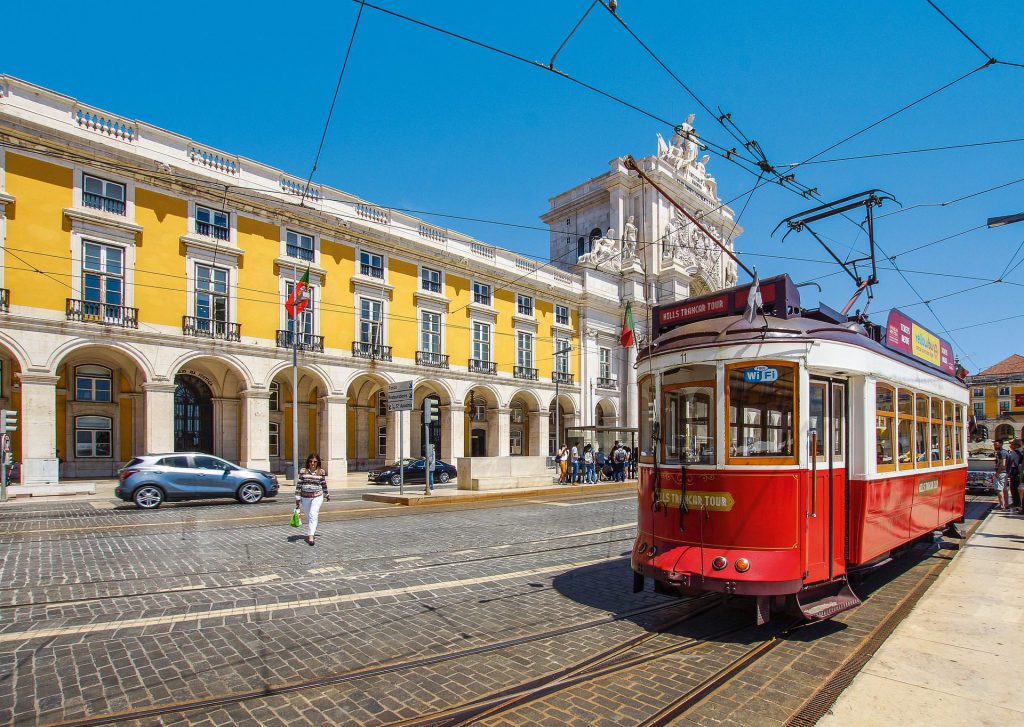
The 7 Best Eco-Friendly Cities in Europe
Cities all over Europe are taking steps to be more eco-friendly. If you’re interested in sustainable travel, below are some of the greenest cities on the continent.
Lahti, Finland
Lahti might not be the most well-known city on the list, but it was recently named the European Green Capital 2021. Located 60 miles north of Helsinki, it has taken actions to become the first carbon-neutral city in Finland, by 2025. The city stopped using coal in 2019 and has since used recycled fuel and local, certified wood for their heating. More than 99% of household waste is recovered, with a third being recycled and the rest being used for energy production. They’re also developing new models for sustainable food and low-carbon construction.
Lisbon, Portugal
Lisbon claimed the title of Europe’s Greenest City last year in 2020. Lisbon has the largest network of electric vehicle charging stations, with over 500 charging points across the city. In 2017, the city implemented a bike-sharing scheme to promote cycling. In the same year, the city took over the bus and tram services, improving both lines to encourage public transport use. One of Lisbon’s bus routes uses electric buses, and another uses bio-fuel buses. The city is aiming to eliminate single-use plastics by 2030 and will also install more solar energy equipment. Lisbon originally aimed to cut carbon emission by 40% by 2030 – they achieved that in 2016 and now aim for a 60% reduction.
Amsterdam, The Netherlands
Amsterdam is renowned for its bikes, so it’s no surprise that 58% of Amsterdam residents commute to their work by bike or on foot. The Dutch capital also has over 800 restaurants that offer meat-free dining options. Many restaurants support local farmers and offer organic food, reducing the food travel journey and minimising the agricultural impact on the environment. Amsterdam is aiming to reduce CO2 emissions by 55% in 2030 and by 95% in 2050. Within the next 10 years, the city is aiming to use only emission-free travel by road or water, utilising its many canals. 80% of households in Amsterdam should be powered by sustainable energy by 2030. Tempted by a move to The Netherlands? Check out our guide for moving to The Netherlands to get the pros and the cons.
Copenhagen, Denmark
Copenhagen boasts twice as many bikes as cars and has free rental bikes available across the city. More than two-thirds of hotels in the city hold an eco-certificate, so you can really travel sustainably. The Copenhagen Fashion Summit is seen as a world leader in promoting sustainable fashion, focusing on climate change and management of resources. Recycling is strongly encouraged, with machines that return a deposit when you put in a plastic cup or drinks can. CopenHill is a waste-to-energy plant that features an artificial ski-slope and hiking area on top of it – just one example of the eco-conscious architecture implemented in the city. Copenhagen has pledged to be completely carbon-neutral by 2025.
Vienna, Austria
Almost half of the area of Vienna is taken up by green spaces – making it literally one of the greenest cities in Europe. But in addition to that, the city has taken great strides in improving wastewater management, air quality and the water supply. 1,000 water fountains in the city have recently been refurbished so they’re supplied with spring water that also generates hydroelectric power as it travels down from the mountains. The city has over 1,300 kilometers of cycle paths and there is a fleet of ‘eco-taxis’ with hybrid engines, which you can hire at no difference in cost to traditional taxi vehicles.
Reykjavik, Iceland
Reykjavik has put its geothermal activity to good use, with most of the city being fuelled either by the heat source or by hydroelectricity. 95% of the heating in Reykjavik’s buildings is fuelled by geothermal heating. Many city buses are powered by hydrogen and electric cars are used by a number of civil services. The city aims to have all vehicles powered by sustainable energy sources by 2025 and millions have been invested into creating cycle paths across Reykjavik. The city has pledged to eliminate all fossil-fuel use and be 100% carbon neutral by 2050.
Stockholm, Sweden
Stockholm is a pioneer in biofuel use, where fuel is generated from waste. Many cars and taxis in the city already use biofuel and the city is looking into how larger vehicles can utilize it too. The city also has a fantastic public transport system, and many areas are pedestrianised. Many restaurants in Stockholm are focused on creating food made from sustainable, locally sourced ingredients. Stockholm is working with energy companies to devise a system where waste heat from data centres, supermarkets and stadiums can be used in people’s homes. The city is aiming to be completely fossil fuel free by 2040.
Once you’ve decided on your first eco-friendly city to visit, make sure to get travel insurance. Expatriate Healthcare offers travel insurance for a single trip or, for total flexibility, an annual policy that covers you for every trip – so you can visit every city on this list!
